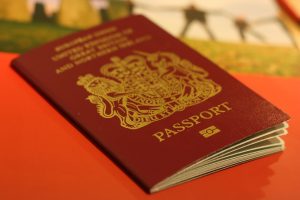Congratulations! You’ve been offered a new job. Many occupations ask for a check into your criminal record. These are often called Criminal Records Bureau (CRB) checks. However, the official name is DBS checks. It’s your employer’s job to help you through the application process. Filling in the form online is the easy bit. After you’ve completed it properly, then the next stage is to bring in documents to prove your identity. This is the stage which causes issues for lots of applicants. So here’s how to navigate the identity maze.
Why could CRB check documents be an issue?
 At first glance, the list of documents which are valid for police checks is lengthy. But look a bit closer and you’ll see that the list is split into groups. There is complex criteria about what combination of documents you’ll need. People often have issues with the first group, the primary identity documents. These are official government ID, with your photo on. Passport and driving licence are the most common examples. The reason the DBS will ask for these documents is clear. Applicants for passports and driving licences have to jump through all sorts of hoops to prove who they are. So seeing a passport, with a clear photo proves beyond all doubt who the applicant is. However, the main problem is for people who don’t drive, and who have never travelled overseas. This could include a lot of younger applicants, or students. They might fall at the very first hurdle of proving who they are.
At first glance, the list of documents which are valid for police checks is lengthy. But look a bit closer and you’ll see that the list is split into groups. There is complex criteria about what combination of documents you’ll need. People often have issues with the first group, the primary identity documents. These are official government ID, with your photo on. Passport and driving licence are the most common examples. The reason the DBS will ask for these documents is clear. Applicants for passports and driving licences have to jump through all sorts of hoops to prove who they are. So seeing a passport, with a clear photo proves beyond all doubt who the applicant is. However, the main problem is for people who don’t drive, and who have never travelled overseas. This could include a lot of younger applicants, or students. They might fall at the very first hurdle of proving who they are.
Address Proof for CRB Checks
The other main proof you need when applying for a CRB check is something to show where you live. The list of accepted proof is longer than for identity, and includes things like bank statements, credit card bills, electricity bill or Council Tax statements. However, this also raises issues for many people who are still in education, living with their parents or who don’t have bills in their own name.
Tackling the Document Problem
If you think you might have problems with proof of identity or address for your CRB check then the first advice is not to panic. This is a situation which comes up all of the time and the Disclosure and Barring Service are there to help. Start by collecting together the documents from the list which you do have. Then give the helpline a call. Ask for their advice. The advisor might confirm that you do actually have the right types of documentation after all. Or can give concrete advice about what other documents you might need to get to complete the process.
There are special arrangements in place for young people under the age of 18 who are applying for DBS or CRB checks. This recognises that these people are far less likely to have things like utility bills, and are too young for credit card statements and mortgage letters in their own names. In some circumstances, the DBS will accept a sworn statement from a headteacher or college principal, confirming the identity of the student and saying how long they have known them.